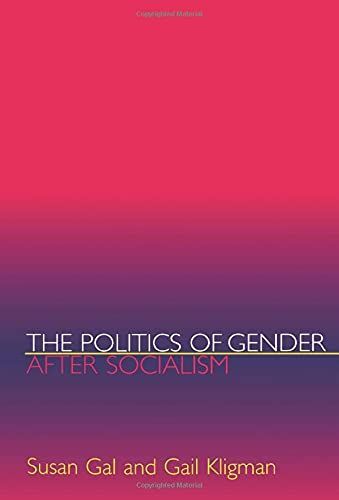
The Politics of Gender After Socialism A Comparative-Historical Essay
With the collapse of communism, a new world seemed to open for the peoples of East Central Europe. The possibilities this world presented, and the costs it exacted, have been experienced differently by men and women. Susan Gal and Gail Kligman explore these differences through a probing analysis of the role of gender in reshaping politics and social relations since 1989. The authors raise two crucial questions: How are gender relations and ideas about gender shaping political and economic change in the region? And what forms of gender inequality are emerging as a result? The book provides a rich understanding of gender relations and their significance in social and institutional transformations. Gal and Kligman offer a systematic comparison of East Central European gender relations with those of western welfare states, and with the presocialist, bourgeois past. Throughout this essay, the authors attend to historical comparisons as well as cross regional interactions and contrasts. Their work contributes importantly to the study of postsocialism, and to the broader feminist literature that critically examines how states and political-economic processes are gendered, and how states and markets regulate gender relations.